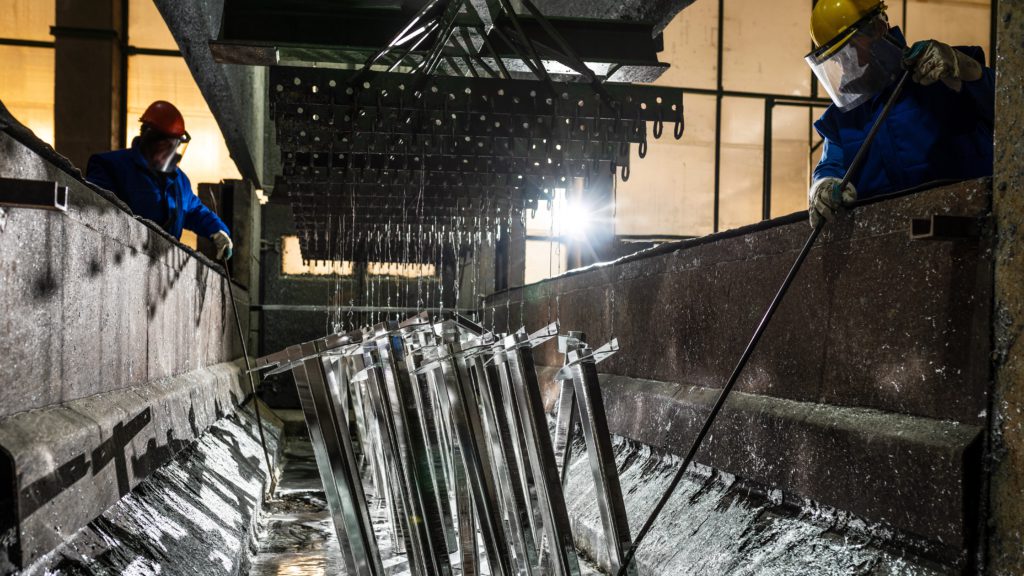China power curbs shutter 500,000t of zinc smelting capacity

Power restrictions in China have shuttered at least 500,000 tonnes per year of zinc smelting capacity, consultancy CRU Group said on Friday, with production losses expected to reach 5,000-6,000 tonnes a week.
China’s southwestern Sichuan province ordered industrial plants to suspend production from Aug. 15 to Aug. 20 to prioritise residential power supply amid its worst heatwave in 60 years.
All zinc smelters in Sichuan halted production early this week, and a small smelter based in neighbouring Hunan province also stopped operations in the following days, said Dina Yu, a zinc and lead analyst at consultancy CRU Group.
Total capacity affected by the outages is at least 500,000 tonnes per year, she said, and follows deeper production cuts in Europe due to sky-high energy prices.
Earlier this week, Trafigura’s Nyrstar said it would put its zinc smelting operations at Budel in the Netherlands on care and maintenance from Sept. 1. The Belgian company had already cut output by up to 50% at its three European zinc smelters.
The news pushed the three-month zinc contract on the London Metal Exchange to a two-month peak at $3,819 a tonne on Tuesday.
China is usually a net importer of the metal, but earlier this year turned net exporter as premiums overseas were attractive.
The outages in Sichuan are only a small percentage of the country’s near 7 million tonnes capacity, and are expected to be temporary, said Yu.
Sichuan produced 350,000 tonnes of refined zinc in July, accounting for 8.6% of a total 408,000 tonnes produced that month, according to state-backed research house Antaike.
Deliverable zinc stocks in Shanghai Futures Exchange warehouses were 96,206 tonnes on Friday, up 10.4% from 87,180 tonnes a week earlier, when it hit a near seven-month low.
Antaike is forecasting a 200,000-tonne deficit in the global zinc market based on the latest production disruption, coupled with improved demand of the metal primarily used to galvanize steel.
(By Siyi Liu and Mai Nguyen; Editing by Jan Harvey)
{{ commodity.name }}
{{ post.title }}
{{ post.date }}




Comments